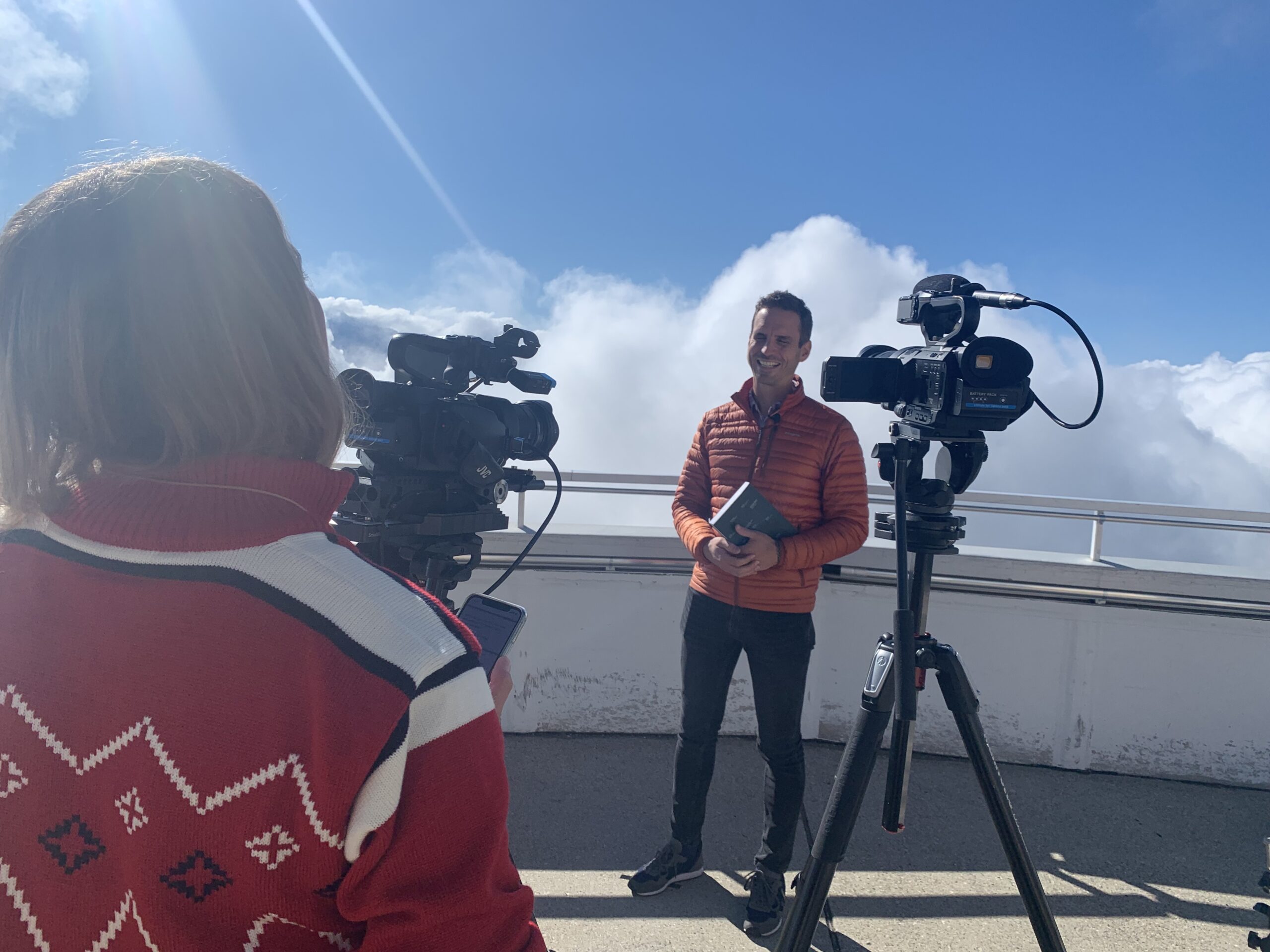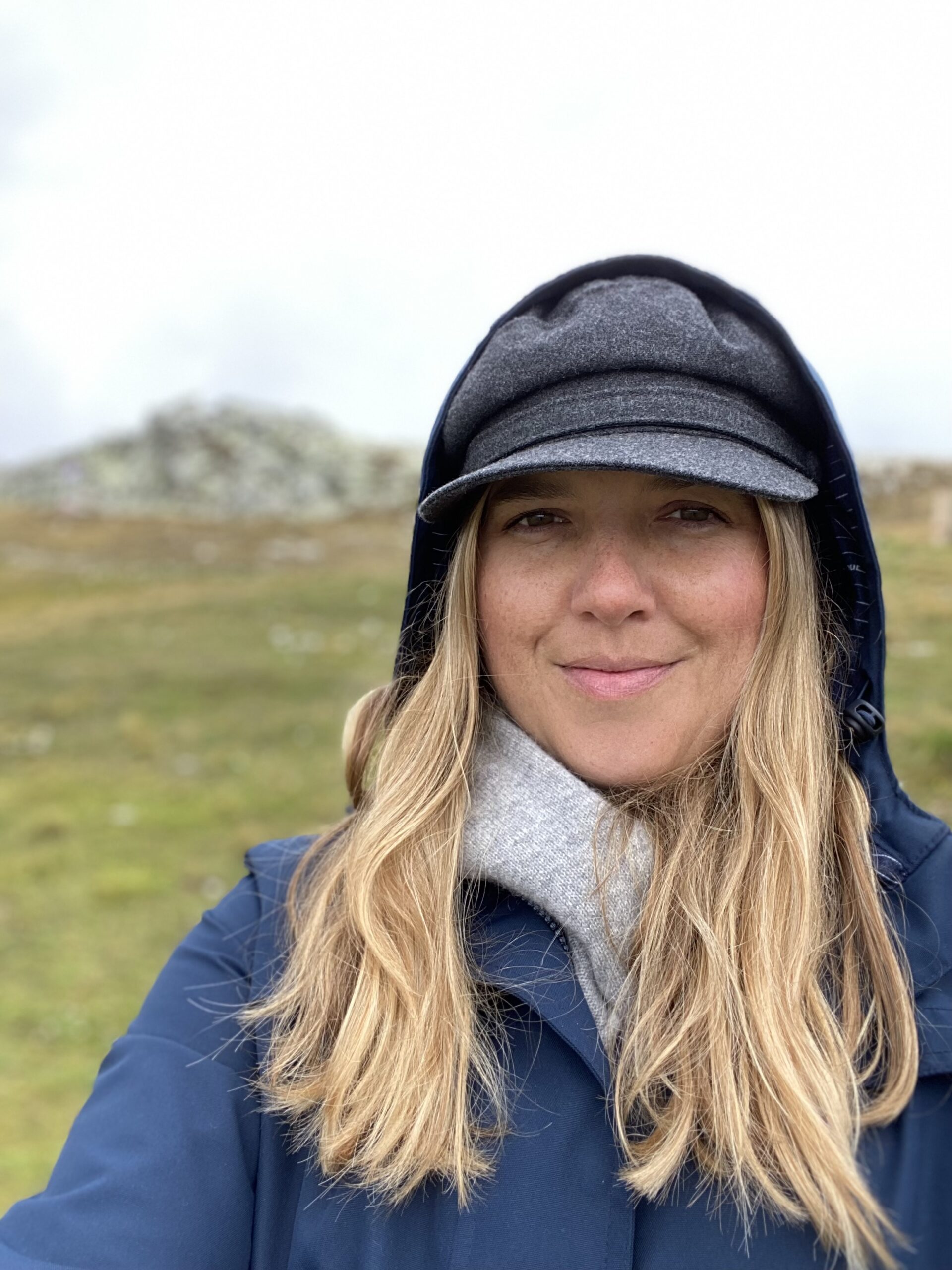Laax. A beautiful mountain resort situated in the Swiss Canton of Graubünden. Best known as a freeride snowboarder's paradise, the village was host in September 2021 to the first ever gathering of the [y]our 2040 community, a coalition of the willing focused on "the world we want to co-create." Supported by ETH Zurich, the event included participants from diverse backgrounds, all connected by a common goal and shared values. Taking the opportunity of being onsite to talk to some of them, we want to make the link with our RETHINKING LIVING campaign, a virtual red-thread we have been running since the start of the pandemic.
From Laax to Davos: Reflections on RETHINKING LIVING, Ep. 2
Episode 2: Maxime Riché, Photographer and Director
by Viktoria Ivarsson
The Journey Begins
RETHINKING LIVING invites us to consider the grand challenges and global issues of today through the lens of the latest science and knowledge. What is life? How do we live? What are the consequences of our lifestyle choices? We asked participants in Laax to tell us what are the questions that keep them up at night, and how they see the future evolving. This video series distills their reflections, to help us think about what could, and what should come next. At the World Economic Forum's Annual Meeting 2022 in Davos, ETH Zurich will take up these questions in its RETHINKING LIVING Pavilion, a space designed to promote dialogue and exchange with a broad audience.
We Cannot Stay Complacent in the Face of the Climate Challenge

Photo credit: Daniel Barnbeck
In the second episode, we talk to Photographer and Director Maxime Riché, author of the newly published book "Climate Heroes". In his view, The biggest challenge we face right now is how to change mindsets and stop taking things for granted. In his words: "we have to change the way we see the world." When it comes to the climate situation, we are at a stage where there is no easy solution and no easy fix. To successfully address this challenge, we need a fundamental shift in behaviour. Watch the interview above, or read the edited transcript below. For additional resources and further information, visit:
https://your2040.com
https://ethz.ch/en/the-eth-zurich/global/events/rethinking-living.htm
https://maxriche.com
https://your2040.com
https://ethz.ch/en/the-eth-zurich/global/events/rethinking-living.htm
https://maxriche.com
My name is Maxime Riché, I'm a French photographer and I've been working on topics such as climate change and sustainability issues for over ten years. I chose the documentary form in order to tell the stories of citizens who started acting, mitigating climate change and reducing our carbon emissions, offering initiatives for change.
Along the years, I've opened up to tackle other subjects such as sustainability, how we live on the planet, where we want to live, how we consume, and how we relate to our environment. The work I've been doing for climate change is called “The Climate Heroes”, and the book has just recently been published. This was a time when I wanted to transmit those stories, and it was a time when I wanted to find a group of people who also wanted to share, create and write new stories together.
That was the perfect spirit and momentum to identify what's working within Switzerland, and beyond; what truly has an impact. My thinking was that I could contribute to that, by inspiring people and offering to produce more stories together. I think that kind of cements this spirit of action and trying to be very concrete about what we can do right now.
I think education, generally speaking, is such an important topic; and I mean not just in schools and universities in our European or Western countries. I would say we need to be thinking broadly about education in the entire population. This includes not just young people, but also people who are already working or senior citizens.
Everyone has to understand or become more aware of the challenges, which are changing so fast. Whatever you learned a couple of years ago is not valid anymore. It's a constant refresh of what's going on in the world and how we need to adjust, anticipate the changes that are coming, and change directions in the way we behave. I would even make a parallel to one of the characters of the book, the person that I met in Africa, who said she's inspired over 3000 women to follow her into recycling plastic and have a more decent living, and by doing so acquired a key role in Gambian society.
This is a challenge, to educate girls and women, especially in Africa. We need to be aware that this is not just happening in a university. Of course, universities have a crucial role to play, but it has to go beyond that so that it can spread. If there is a way that universities can also contribute or support education in all those areas, that just would be much better also globally, to educate in every sense of the term the entire population.
Along the years, I've opened up to tackle other subjects such as sustainability, how we live on the planet, where we want to live, how we consume, and how we relate to our environment. The work I've been doing for climate change is called “The Climate Heroes”, and the book has just recently been published. This was a time when I wanted to transmit those stories, and it was a time when I wanted to find a group of people who also wanted to share, create and write new stories together.
That was the perfect spirit and momentum to identify what's working within Switzerland, and beyond; what truly has an impact. My thinking was that I could contribute to that, by inspiring people and offering to produce more stories together. I think that kind of cements this spirit of action and trying to be very concrete about what we can do right now.
I think education, generally speaking, is such an important topic; and I mean not just in schools and universities in our European or Western countries. I would say we need to be thinking broadly about education in the entire population. This includes not just young people, but also people who are already working or senior citizens.
Everyone has to understand or become more aware of the challenges, which are changing so fast. Whatever you learned a couple of years ago is not valid anymore. It's a constant refresh of what's going on in the world and how we need to adjust, anticipate the changes that are coming, and change directions in the way we behave. I would even make a parallel to one of the characters of the book, the person that I met in Africa, who said she's inspired over 3000 women to follow her into recycling plastic and have a more decent living, and by doing so acquired a key role in Gambian society.
This is a challenge, to educate girls and women, especially in Africa. We need to be aware that this is not just happening in a university. Of course, universities have a crucial role to play, but it has to go beyond that so that it can spread. If there is a way that universities can also contribute or support education in all those areas, that just would be much better also globally, to educate in every sense of the term the entire population.

Photo credit: Viktoria Ivarsson
About the author
Change Agent. Go-to Person. Viktoria Ivarsson is the International Relations Officer in the Office of the President of ETH Zurich, where she works on projects and events of international scope to increase the visibility of the university worldwide. She also manages the ETH Circle, an international network of alumni and friends of ETH Zurich who act as ambassadors. Formerly with EHL School of Hospitality, Hirslanden, and the World Economic Forum, Viktoria holds an MAS in Sports Administration and Technology from the Swiss Federal Institute of Technology in Lausanne (EPFL), and an MA in International Relations from the Graduate Institute of International and Development Studies (HEI). A Swiss and Swedish national, she is fluent in 4 languages, and is currently learning German. A member of Nordiska, the Nordic Rowing Association, she can be found most mornings rowing on Lake Zurich. You can follow her on Twitter at V_Ivarsson.
comment
Please activate comment.


